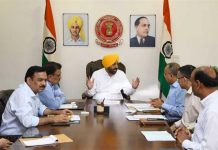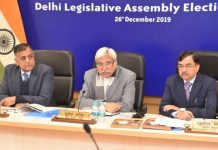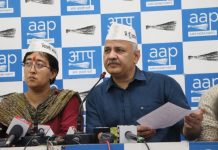
There is a huge backlash across Kerala against activists and others associated with the Kiss of Love protest which opposed moral policing. What provoked the torrent of abuses — vile and misogynistic for the most part — was the arrest of two persons associated with the protest, Rahul P asupalan and his wife and model Resmi R Nair, for alleged prostitution and soliciting.
The previously unknown couple rose to prominence when they were part of a small group who were bullied and harassed at the curtain raiser of the event a year ago. As the scuffle was broadcast live on TV, Rahul and Resmi became the faces of the protest. They were routinely invited to discussions on television and featured on news stories related to the event.
The movement had just marked its first anniversary and there were discussions on the successes and failures of the movement in the social media. The arrests, however took the discourse on an abrupt new direction.
As soon as the news spread, the opponents of the movement pounced upon it with glee declaring that it was a cover for flesh trade. The Facebook walls and WhatsApp profiles of people who had supported the Kiss of Love protest were flooded with jokes, innuendos and insults.
Some news outlets of the state competed among themselves to make the story as sleazy as possible, with links of a paedophile Facebook page and sex trafficking of minors thrown in. All this made it seem as if the Kiss of Love protest movement was something that Rahul and Resmi cleverly used to further their alleged sex trade.
In a later interview to The Newsminute portal, IG of police (Crime Branch), S Sreejith said the couple had nothing to do with the paedophile page. He added that although they were not involved in trafficking of minors, they were aware that the racket was involved in it.
Although the organisers and participants are busy defending themselves and the movement, the arrests have hit the movement, which sprang up as a response to Sangh Parivar activists vandalising a restaurant in Kozhikode following a TV news report that ‘immoral activities’ were taking place there. Jolly Chirayath, a participant of the movement, says that the movement was not one which sprang up in a day or two but it was the culmination of resistance against moral policing that has been steadily on the rise.
Couples were routinely harassed for travelling together or for sitting in public parks or beaches. In some cases, people were even beaten to death because they were found in situations deemed inappropriate by the right-wing vigilante groups, which were getting emboldened by the day.
Moral policing was not confined to those on the right side of the political spectrum. Even some cadres of the youth wing of the CPM , the Democratic Youth Federation of India (DYFI), were involved in such cases. The then CPM State Secretary Pinarayi Vijayan was critical of the mode of protest chosen by the youngsters.
The idea of kissing in the streets as a form of radical protest took root among a few, who organised the first Kiss of Love event at Kochi on 2 November. The movement soon captured the imagination of the nation and was emulated in several places inside and outside Kerala. It also brought fame to those who had spearheaded the movement, including Rahul and Resmi.












